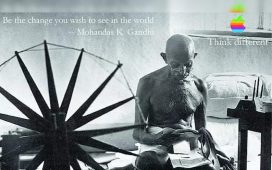
Jaishankar underlined, perhaps wryly, that the US shouldn’t ‘feel bad’ if India comments on its internal affairs. Considering that the interaction took place on the sidelines of the UN General Assembly – where all countries have a vote – the foreign minister’s argument that one or a handful of countries do not have the unfettered right to comment while other countries remain passive consumers of such comments is spot on. Democracies that are partners and friends, like the US and India, must be mutually respectful. This means understanding and respecting each other’s domestic and international challenges, figuratively walking in the other’s shoes before passing offhand judgements – or at least allowing that understanding to inform their comments.
Even as its global role has expanded, India has been reticent to comment on developments in other countries, treating them as ‘internal matters’. Nor has New Delhi been proactive in contextualising and explaining its own developments to ensure more informed commentary from abroad. If global leadership is what India seeks, then shaping the narrative must also become part of its diplomacy.








